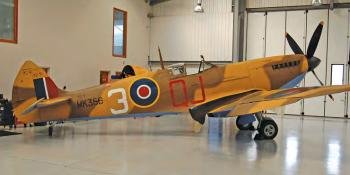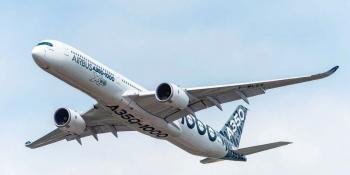Loganair and Flybe to End Franchise
Loganair and Flybe will end their franchise agreement next year, meaning the Glasgow-based Loganair will once again fly under its own name. Loganair has operated under franchise agreements for 23 years, firstly with British Airways from 1993 and with Flybe since 2007. Loganair will fly under its own name from September 1, 2017 and its 28 aircraft, mainly Saab 340s but also Saab 2000s, Dornier 328s, DHC-6 Twin Otters and Islanders, will be repainted with a livery featuring a tartan pattern on the tail. Mark Broadbent
Embraers at Eastern
UK regional carrier Eastern Airways has introduced two Embraer E170s, G-CIXV (c/n 17000111) and G-CIXW (c/n 17000230), into service. The Humberside Airport-based airline is using the aircraft to offer a new product for the charter and ACMI (aircraft, crew, maintenance, insurance) markets. One E170 will be assigned to long-term ACMI work and the other for charter flying across the UK and Europe. The new aircraft take Eastern Airways’ fleet to 32 aircraft, also comprising 18 BAE Jetstream 41s, nine Saab 2000s and three ERJ-145s. Mark Broadbent
MS-21 First Flight Date
Russia’s MS-21 airliner will make its first flight in February or March 2017, Deputy Prime Minister Dmitry Rogozin stated during a high-profile meeting with President Vladimir Putin in Moscow. Two MS-21s are currently being brought to flight status, one at the United Aircraft Corporation facility at Irkutsk and one at a flight test facility near Moscow. The third MS-21 was due to have been rolled out at Irkutsk in December. The fourth MS-21 will be fitted with Russiandesigned PD-14 engines, planned to be fitted to production MS-21s starting in 2019. David C Isby
UAV Hub in Africa
Kenyan cargo airline Astral Aviation has established Astral Aerial Solutions to deliver cargo by Flyox I UAVs. This amphibious aircraft, made by Spain’s Singular Aircraft, is the biggest civil UAV on the market, with a payload of 1,850kg (4,078lb) and an empty weight of 2,200kg (4,409lb). UAV operations will begin in February 2017 at Kapese Airstrip, which is heavily used by oil and gas companies. Astral CEO Sanjeev Gadhia said the UAVs would monitor the movement of oil trucks and transport cargo and parcels to areas that lack postal addresses. They will also be used for charters, mapping, the oil and gas sector, and transporting humanitarian aid. During the Ebola outbreak, airlines could not fly to affected areas but with UAVs that is now a possibilty. Guy Martin



